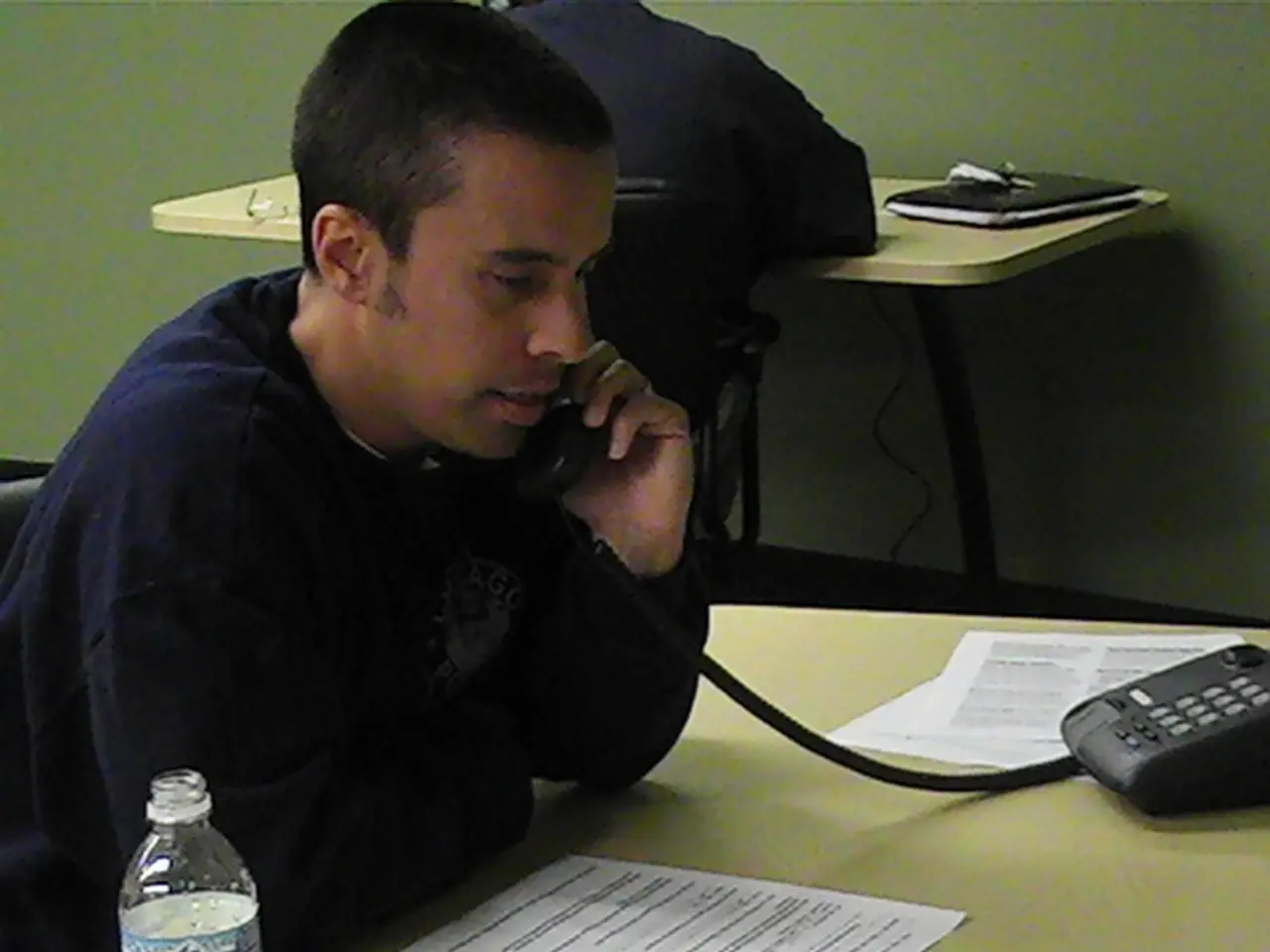Enhancing Client Ties through Mobile Coaching: Amplifying Client Connections at the Given Company
In today's competitive business landscape, the importance of a positive first impression cannot be overstated. For many businesses, this first impression often occurs over the phone, making the role of the receptionist pivotal. To improve phone training success and enhance first impressions, client relationships, and overall firm growth, a comprehensive, structured, and ongoing training program is essential.
Key strategies for this program include implementing professional phone answering techniques, developing detailed call handling protocols, using ongoing training and quality monitoring, focusing on enhancing client relationships, incorporating business-specific knowledge, establishing feedback and performance metrics, and transforming the role of the receptionist from a simple gatekeeper to a "Director of First Impressions."
Implement Professional Phone Answering Techniques
Training receptionists to answer calls promptly, use a warm and clear greeting, and speak with a positive, friendly tone sets a professional and inviting atmosphere from the start. This approach not only creates a positive first impression but also helps to build rapport with callers.
Develop Detailed Call Handling Protocols
Providing clear guidelines for how to manage different types of calls ensures that receptionists handle calls efficiently and accurately represent the firm's brand and values. This includes having escalation steps for urgent issues, common client questions, and consistent message-taking procedures.
Use Ongoing Training and Quality Monitoring
Regular training on updated procedures, customer service skills, and call handling best practices, along with periodic monitoring of calls or transcripts, allows for constructive feedback and continuous improvement. Role-playing scenarios can help employees build confidence and problem-solving abilities.
Focus on Enhancing Client Relationships
Advanced communication skills that build trust and rapport, manage difficult callers with confidence, and create a positive client experience that encourages loyalty are crucial. Emphasizing active listening and the use of positive language helps deepen client connections.
Incorporate Business-Specific Knowledge
Providing a comprehensive business profile to receptionists ensures they can provide informed and consistent support aligned with the brand. This includes services offered, key personnel, and typical client needs.
Establish Feedback and Performance Metrics
Using KPIs like call answer time, client satisfaction, and accuracy of information to measure receptionist performance, and holding regular review meetings to discuss improvement opportunities and adapt training as the firm grows, ensures a high standard of service is maintained.
By combining these elements into a structured training program and maintaining ongoing management and feedback, your receptionists can consistently deliver excellent first impressions and forge strong client relationships that contribute to overall business growth.
Investing in phone training success is an investment in the firm's reputation, growth, and client relationships. Every word, tone, and pause matters during phone interactions. Use call logs as intake sheets to capture critical information accurately. The transformation of phone interactions into meaningful client relationships is at the heart of phone training success.
Book a free 30-minute discovery call or email for actionable tips on law firm growth, client management, and team empowerment. Teaching the receptionist to identify what constitutes an "emergency" call helps them make confident decisions about interrupting a busy attorney. The receptionist should be able to articulate the firm's mission, values, and purpose to embody the firm's mission in every phone interaction.
The phone is often the first and sometimes only interaction a potential client has with a firm. A positive phone interaction can inspire confidence and convert a caller into a client, while a negative one can push them to look elsewhere. This role requires making every caller feel valued and ensuring they walk away with confidence in the firm. The receptionist sets the tone for the entire client relationship.
Providing the receptionist with an "upcoming events" binder or a regularly updated resource increases their ability to answer client questions directly and build trust. Developing clear, professional scripts for common calls ensures important details are not forgotten. Documenting the phone training success process step by step provides a valuable resource for future hires and allows for refinement and improvement of procedures over time. Creating designated call-back times and communicating them to clients demonstrates professionalism.
In conclusion, investing in a strong phone training program ensures consistent, warm, and aligned first impressions. Phone calls should be viewed as vital touchpoints that fuel the firm's success, not as interruptions. Every well-handled phone call builds confidence and trust with clients, while each poorly handled call can have the opposite effect.
Encourage personal growth by coaching receptionists to embody the firm's mission, values, and purpose in every phone interaction, setting the tone for the entire client relationship. To foster team empowerment, provide training on advanced communication skills that build trust, manage difficult callers with confidence, and create a positive client experience. Regularly invest in education and self-development by offering structured training programs that focus on developing detailed call handling protocols and incorporating business-specific knowledge for improved client relationships. Foster a financial commitment to the firm's growth by utilizing ongoing training and quality monitoring, using KPIs to measure receptionist performance and maintain a high standard of service.




